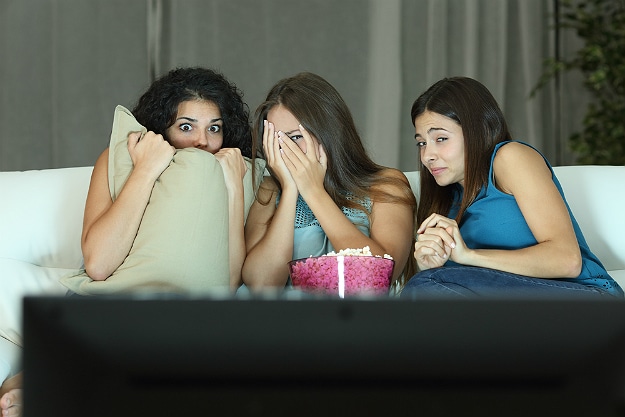When it comes to movies, no genre is more divisive than horror. Some people love scary movies, some people find them tacky, and others are too afraid to test their tastes. But why exactly is most of the world split on how they interpret scary movies? When we watch a romantic comedy, we don’t actually believe that Reese Witherspoon and some dirty trailer park mechanic would actually get together – but we watch it anyways. We don’t actually believe that Tom Hanks is a mentally challenged man that went to Vietnam.
However, why is it when watching scary movies, do we find ourselves scared of the possibility of some monster or serial killer breaking into our house and killing us? It’s because something else gets activated in our brains. We become afraid. This article is going to take a look at what exactly it is that creates the true fear inside ourselves when watching something we know to be fiction.
The Excitation Transfer Process
One of the main appeals of watching a horror movie, according to Glenn Sparks, a professor and associate head of the Brian Lamb School of Communication at Purdue University, is the feeling we get after the movie is over. During the actual watching of the film, your heart rate, blood pressure and respiration all increase. When the movie is over, this feeling lingers, yet, we aren’t aware of it.
What this means is that any positive emotions we feel during the movie – like having fun with friends – is intensified. Instead of recalling the fear you felt during the movie, you are more likely to remember the fun you had being scared with friends. This is called the Excitation-Transfer Process.
However, if you have a negative experience during the film – such as being on a date that went badly, or got into a car accident on the way home – you would remember those elements stronger than the good times you had during the film. Any lingering arousal enhances any emotions you feel after the event, which might convince you to skip over Stephen King’s It and stick to the rom-coms.
Different Physiology
When it comes down to it, people are just plain different from one another due to their particular biology. According to Glenn Sparks, about 10 percent of people enjoy the adrenaline rush of being scared. Not surprisingly, this is also the same cohort that really enjoys roller coasters.
Some individuals have a harder time viewing unwanted stimuli (in this case: scary movies). For example, they may be hypersensitive to the tag on their shirt or the temperature in the room, which can cause intense physiological reactions to horror films.
Phobia Recreation
Many people have phobias and may or may not be aware of the cause of them. The entire premise of the horror genre is to recreate specific fear triggers in people. Which is why some people will be more affected by certain movie themes than others. For instance, someone who has survived a debilitating car accident may not be fond of any scenes with severe or brutal car crashes. Nearly all humans have a fear of death in some way or another; it is the common thread that is weaved between us all.
However, the main driving element in all horror movies is the fear of the unknown. Have you ever seen a movie that had a monster in it that was scary, even though you never saw what it looked like? The movie allowed you to use your own imagination, your own personal fears and turned them against you.
Whatever the reason for the fear, the horror genre is alive and well and not going anywhere.

COMMENTS